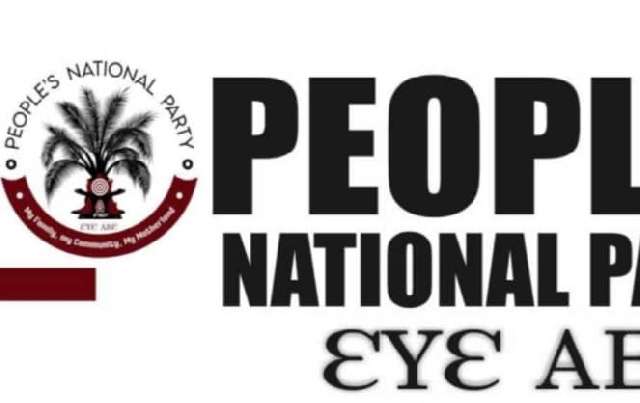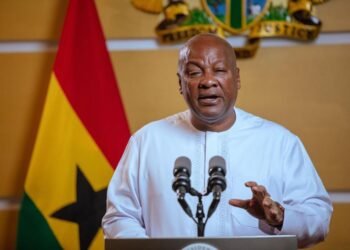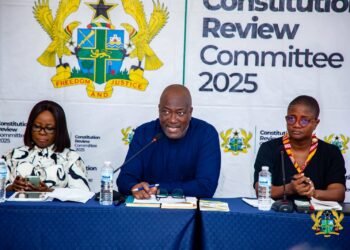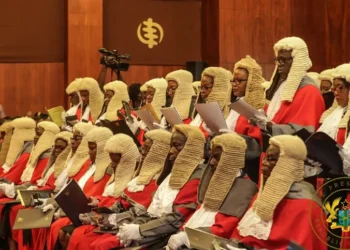The People’s National Party (PNP) has announced that it will not pursue legal action following the Electoral Commission’s (EC) decision to disqualify its presidential aspirant, Janet Asana Nabla, from participating in the December 2024 elections.
The party made this known in a statement issued in Accra, noting its disagreement with the EC’s grounds for disqualification but stressing its decision to focus on more pressing internal matters.
“The PNP threw its support behind its current chair and leader, Janet Asana Nabla, to contest in the upcoming presidential election. Unfortunately, the Electoral Commission decided to disqualify her on grounds we respectfully disagree with the Commission”.
Sulemana Seidu, General Secretary, PNP
Despite the disappointment, the PNP emphasized that its decision not to challenge the EC’s ruling in court was taken after consultations with members across the country.
According to the party’s General Secretary, Sulemana Seidu, who signed the statement, “the party has chosen to let it go” to focus on securing its final certificate to enable it to operate as a full-fledged political party.
Strategic Shift: Focus on Party Certification and Civic Education
The PNP further indicated that its immediate priority is not to contest elections but to ensure that it receives the necessary legal recognition to fully function as a political party.
This move marks a strategic shift, as the party seeks to strengthen its internal structures and enhance its capacity to operate effectively on the national stage.
Sulemana Seidu further underscored that while elections are important, the PNP’s broader vision includes civic education and public engagement.
“The PNP as a political party is not limited to contesting elections. We aim to educate citizens on political issues, government policies, and their societal impacts.”
Sulemana Seidu General Secretary, PNP
According to Sulemana Seidu, the General Secretary of the PNP the civic-oriented approach reflects the PNP’s commitment to playing a broader role in Ghana’s political landscape, especially in an era of increased voter education and policy scrutiny.
He pointed out that the party’s leadership sees its role as going beyond electoral contests, positioning itself as a vital watchdog that will hold the government accountable through policy reviews, proposals, and calls for transparency.

Party Appeals for Calm and Unity Among Supporters
Acknowledging the potential disappointment of its followers, the PNP appealed for calm and unity, assuring them that the party would soon unveil a clear path forward.
As the December 7, 2024, general elections approach, the PNP vowed to provide “direction on the way to go” for its members and supporters, urging them to remain resolute and committed to the party’s core values.
The PNP, under the leadership of Nabla, continued to express confidence in its political future. The party’s slogan, “My Family, My Community, My Motherland,” per the statement, underscored its vision of uniting citizens around common causes, addressing local needs, and contributing to the nation’s development.
With limited resources, smaller parties often face the difficult choice of allocating funds between lengthy legal disputes and building party structures.
By focusing on receiving full certification and preparing for long-term political engagement, the PNP might be positioning itself for a more sustained presence in Ghanaian politics.
While disqualification from the presidential race is a setback, the PNP’s strategic shift reflects a party committed to growth and long-term influence.
According to the statement, the leadership, under Janet Asana Nabla and Sulemana Seidu, remains determined to strengthen the party’s foundations, educate the public, and hold the government accountable.
Before her disqualification, the flagbearer of the People’s National Party (PNP), Janet Asana Nabla, expressed her intention to eliminate the free market economy currently being operated in Ghana and establish price controls within the initial six months of her potential administration.
She articulated that the rising prices in the nation have created an urgent requirement for price regulation to reduce the expenses associated with goods and services.
She criticised the formation of associations by businessmen to increase prices and the lack of action by the Parliament.
Ms Nabla also proposed to support small-scale farmers and boost agricultural production in Ghana by providing financial support through institutions like the National Investment Bank, specifically targeting small-scale and women farmers.
READ ALSO: Wizkid Declares Himself As Biggest Artist in the World























